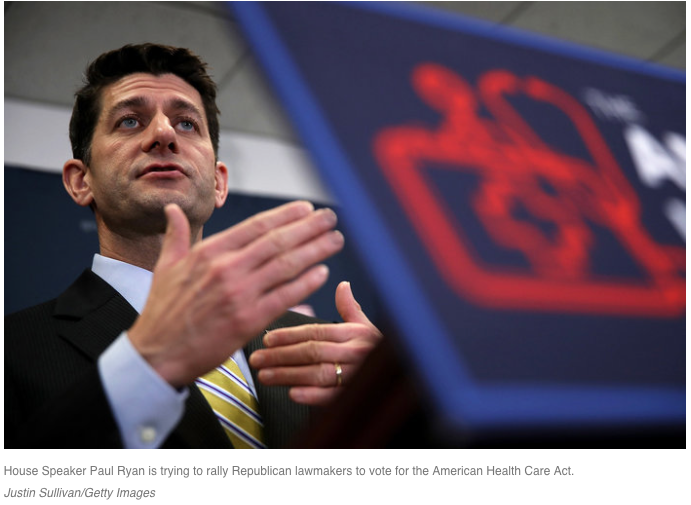When House Speaker Paul Ryan says he wants to repeal the Affordable Care Act so that people can buy insurance that’s right for them, and not something created in Washington, part of what he’s saying is that he wants to get rid of so-called essential health benefits.
That’s a list of 10 general categories of medical care that all insurance policies are required to cover under the Affordable Care Act.
Getting rid of that requirement, or trimming it, is central to the Republican strategy, because they say those benefits drive up insurance premiums so much that healthy people won’t buy coverage.
But if Republicans repeal that list, they essentially renege on a promise they’ve repeated over and over to voters, that they will protect people with pre-existing medical conditions.
“Protections for pre-existing conditions only work as long as plans have to cover the services you need because of your pre-existing condition,” says Rodney Whitlock, a vice president at the consulting group ML Strategies who was a Republican staffer on the Senate Finance Committee when the Affordable Care Act was passed. “By repealing [essential health benefits], a plan may no longer have to cover those services, making the protection potentially meaningless.”
That’s because if insurance companies don’t have a list of medical services they have to include in their policies, they can sell stripped-down policies and then charge extra for specific types of coverage.
This isn’t theoretical.
Before the Affordable Care Act went into effect, insurance companies routinely found ways to avoid paying for expensive health care. Beyond refusing to cover people with existing medical conditions, they sold policies that excluded coverage for some medical care, including prenatal care, childbirth and mental health care.
According to the Century Foundation, 9 percent of policies didn’t even cover prescription drugs.
A survey by HealthPocket Inc. shows that before Obamacare, only 61 percent of health plans included coverage for mental health care, and that coverage was often limited.
People who wanted better coverage could often buy a special plan to add to their basic insurance. But insurers know that those who buy add-on insurance do so because they need it, or expect to need it in the future, so such plans are quite expensive.
That’s especially clear when it comes to maternity care, which has been a frequent target of Republican ire.



You must be logged in to post a comment Login